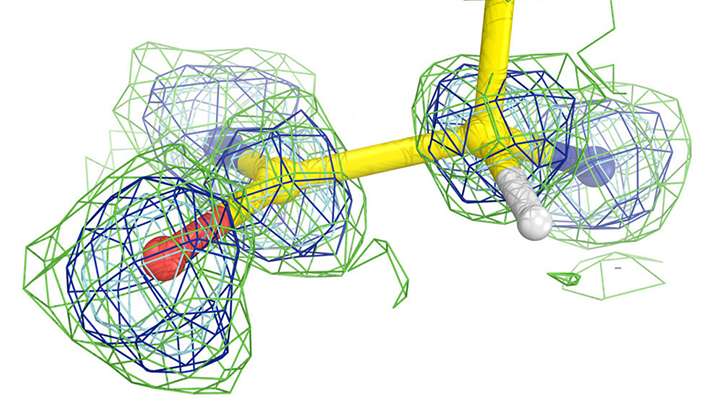Researchers describe how free radicals contribute to aging

Aging in part is the result of oxidative damage to proteins caused by free radicals, a byproduct of interaction of our bodies and radiation such as sunlight. A new study by Yale scientists provides some clues into how this damage is inflicted.
The research team headed by Jimin Wang analyzed protein structures after bombardment with massive amount of X-rays.
They found many different examples of oxygen molecules added to the proteins and polypeptide bonds within proteins, rendering them non-functional.
Some of these damaged proteins also become unrecognizable to proteasomes, the cellular garbage collectors that clean up faulty proteins.
The problems are compounded because proteasomes themselves are also damaged while trying to clean faulty proteins.
This further limits the process of cellular cleanup, a failure that is a major characteristic of aging.
The work is described in this week issue of the journal Protein Science.
More information: Jimin Wang. X-ray radiation-induced addition of oxygen atoms to protein residues, Protein Science (2016). DOI: 10.1002/pro.2934
Provided by Yale University


















